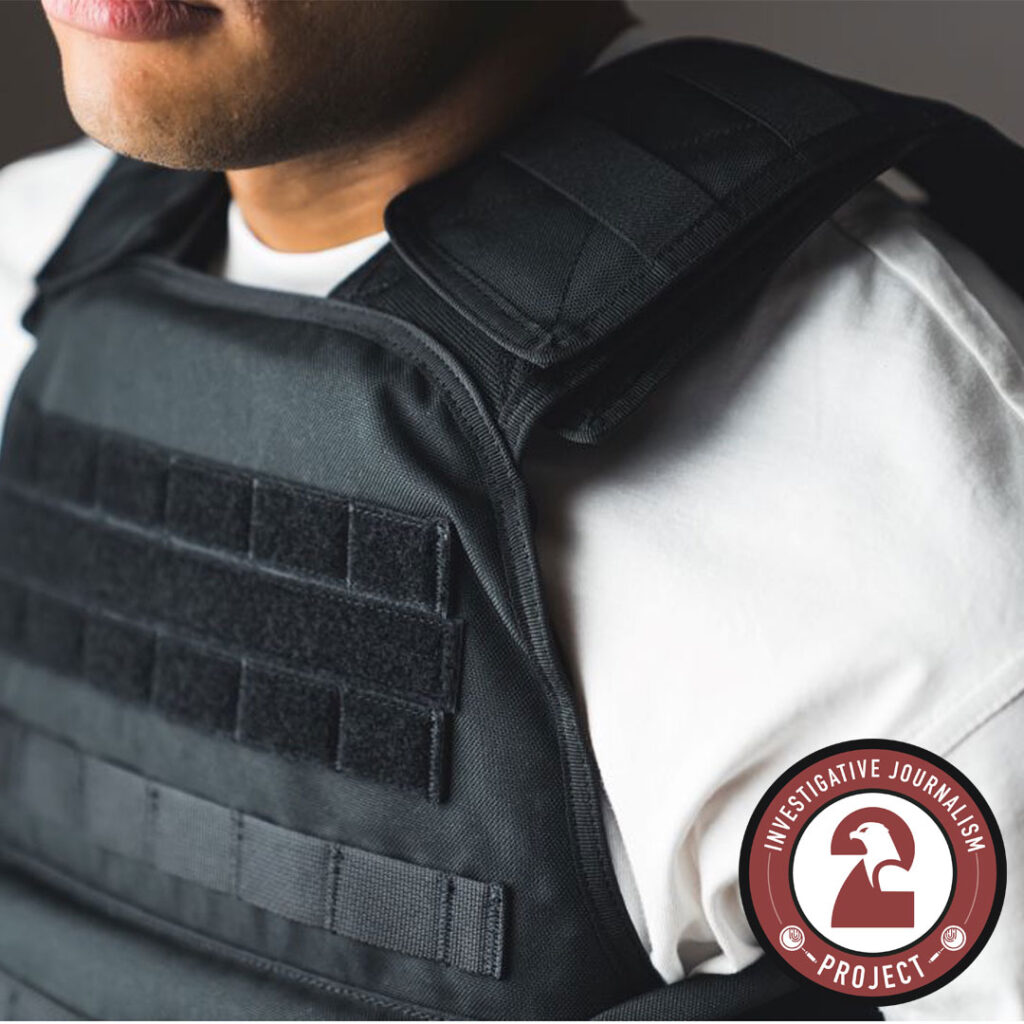by Lee Williams
New York Democratic Congresswoman Grace Meng wants to make it easier for criminals to shoot you. Meng has reintroduced legislation – for the third time – that would ban civilian body armor if it can defeat rifle ammunition.
Meng’s bill, H.R. 3247, which is titled the “Aaron Salter, Jr., Responsible Body Armor Possession Act,” would ban the “purchase, ownership, or possession of enhanced body armor by civilians.”
The bill defines enhanced body armor as having the ballistic resistance that meets or exceeds Level III standards as defined by the National Institute of Justice. Level III and Level IV are designed to stop rifle rounds. The legislation would also ban helmets and ballistic shields if they are Level III or greater.
Of course, Meng’s bill contains a carve-out for law enforcement and members of the military. There is also a grandfather clause for civilians who purchase armor before the bill takes effect. Currently, H.R. 3247 is stalled in the House Judiciary Committee. The bill has nine cosponsors, all Democrats, including five from New York.
Meng, a member of the House Gun Violence Prevention Task Force, announced she was reintroducing the legislation on the two-year anniversary of the 2022 Tops Friendly Market grocery store shooting in Buffalo, New York, during which the shooter, who was wearing body armor and a ballistic helmet, killed 10 Black customers and wounded three more.
The shooter, who wrote in a manifesto that his actions were racially motivated, was sentenced last year to 11 consecutive life sentences in prison without the possibility of parole. The bill was named in honor of Aaron Salter, Jr., a retired Buffalo police officer who got off several rounds but was killed during the mass murder.
“It should not be the case that anyone with internet access can purchase equipment designed to stop military-grade ammunition,” Meng said in a press release last week.
Officer Salter’s gallantry notwithstanding, Meng’s bill is an unconstitutional nightmare that will do nothing to reduce violent crime. Like all gun control initiatives, law-abiding Americans will be left unprotected, and criminals will continue to armor up despite any new law. In other words, it would make it even more difficult for good people to protect themselves.
Congresswoman Meng’s communications staff did not return calls seeking her comments for this story.
FBI data ignored
According to the FBI’s landmark study, “Active Shooter Incidents 20-Year Review, 2000-2019,” roughly 5% of the active shooters wore body armor during their mass murders – 16 of the 345 shooters – five at open areas, four at business open to the public, three at government buildings, two at high schools, and two at universities.
Neither Meng nor her cosponsor Congressman Timothy Kennedy, a Democrat representing New York’s 26th District, cited this FBI data in their press release announcing the bill’s reintroduction. Instead, they used another data source.
“According to the Gun Violence Archive, there have already been over 150 mass shootings in 2024,” their press release states.
The Gun Violence Archive has been debunked more than a dozen times just on this site alone. Even some in the gun-ban industry have moved on from the GVA and are using other, less-notorious data sources. The GVA uses an overly broad definition of a mass shooting, which creates inflated statistics designed to hoodwink the public. For example, according to the GVA’s all-inclusive definition, there were 417 mass shootings in 2019. The FBI says there were 30, because it uses a much narrower and more realistic definition.
Mainstream appeal
Body armor has increased dramatically in popularity. Millions of law-abiding Americans have incorporated flexible armor and/or plate carriers into their home-defense plans. Even Amazon now offers hundreds of options, although many are inferior Chinese junk.
No group has embraced body armor more than combat veterans, and there are millions of combat veterans. They wore plates overseas while defending this country. Now, they want a similar rig at home. Meng’s bill would stop all of this. There is no carve out for military veterans in her legislation, despite their valorous service.
Scott Burton, editor of the Netherlands-based industry newsletter Body Armor News, pointed out that most Americans purchase body armor solely for defensive applications.
“In shooting incidents, the instinctive target for many individuals is often the largest and most visible body part: the chest,” Burton said Monday. “Body armor, as a protective measure worn over this vital area, can therefore prove highly effective during shooting incidents.”
Burton was not sure how many sets are sold each year to law-abiding civilians, but believes the numbers are high.
“Estimating the exact figure is difficult. However, I am sure that tens of thousands of ballistic vests are being purchased by civilians annually. Perhaps even a hundred thousand,” he said.
An infringement
Industry experts point out that body armor is protected by the Second Amendment, and Meng’s bill is a clear infringement.
“As body armor is basically used for personal protection and self-defense, we think banning it would violate the Second Amendment,” Burton said. “A successful ban on body armor could potentially serve as an initial step toward implementing stricter regulations on firearms.”
They point to the 2008 U.S. Supreme Court case District of Columbia v. Heller, which held that Americans have a right to keep and bear arms for self-defense and protection in their home. Banning law-abiding Americans from purchasing another means of self-defense would infringe upon their Second Amendment rights.
Besides, most states have already enacted laws regulating body armor that do not infringe on anyone’s constitutional rights.
- Arizona makes it illegal to wear body armor during the commission of a crime by adding additional charges and penalties.
- Arkansas allows civilians to purchase body armor unless they have been convicted of a felony.
- California bans convicted felons from owning body armor, which is already federal law.
- Delaware makes it illegal to wear body armor during the commission of a crime.
- Florida makes it illegal to wear body armor during the commission of a crime, and anyone can make a purchase unless they have been convicted of a felony.
- Hawaii allows civilians to purchase and wear body armor unless they have been convicted of a felony.
- Massachusetts makes it a felony to wear body armor during the commission of a crime. Anyone can purchase body armor unless they have a felony conviction.
- New Jersey allows anyone to purchase body armor unless they have a felony conviction. If it is used during a crime, prosecutors can add separate charges and penalties increase.
Takeaways
From a tactical perspective, Congresswoman Meng’s legislation is a headscratcher. She believes Americans deserve protection from handgun rounds, but not rifle ammunition.
How does this make sense?
There is little doubt that Meng resurrected her body armor ban for a third time without some input from the White House, specifically the Office of Gun Violence Prevention, which is orchestrating Joe Biden’s war on our guns.
Given all of the convicted criminals, military-age males and terrorists Biden has allowed to cross our border unmolested, rather than backing a ban, perhaps the administration should consider issuing plate carriers to every law-abiding American. We are going to need them eventually. It’s only a matter of time.


